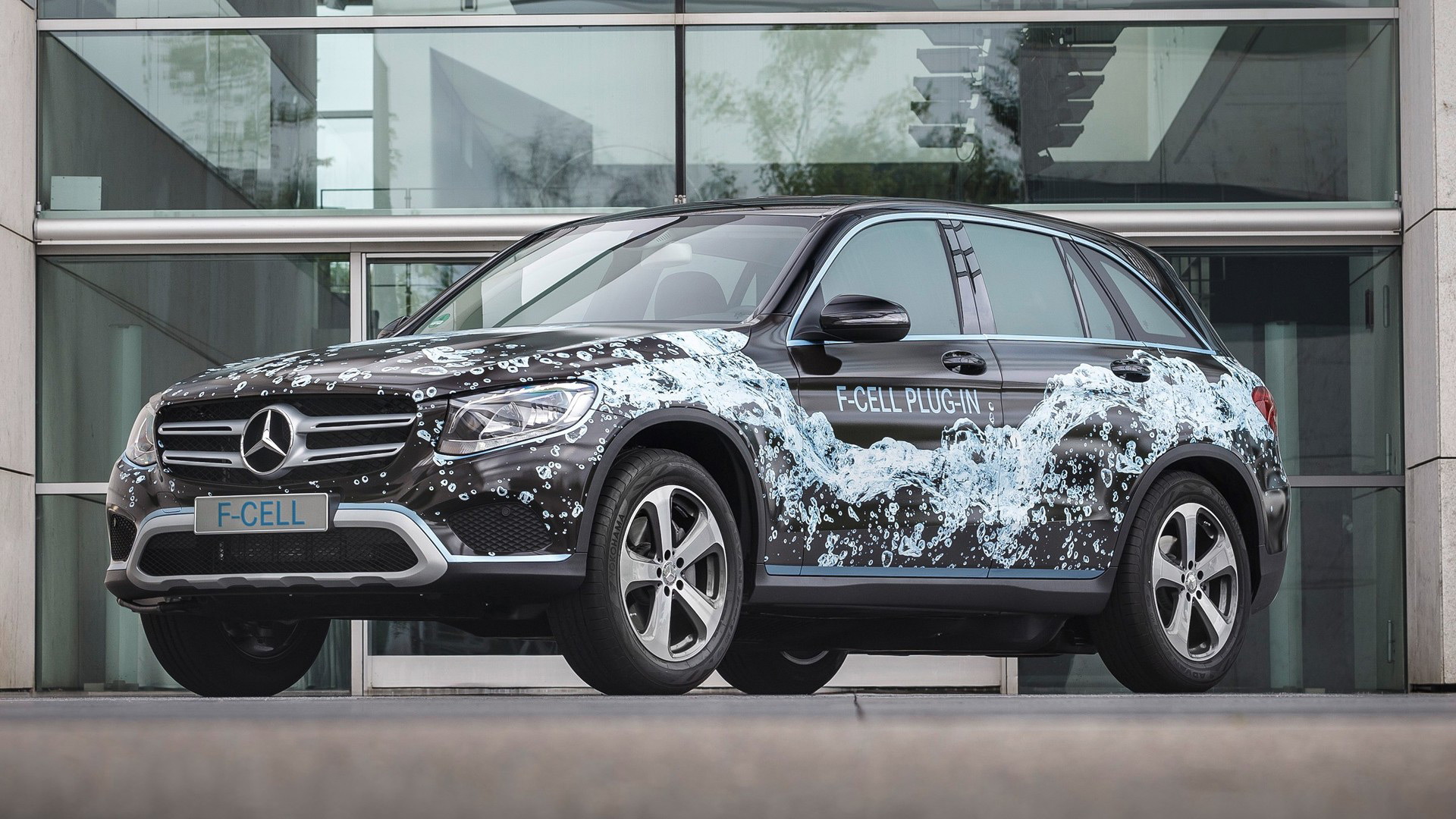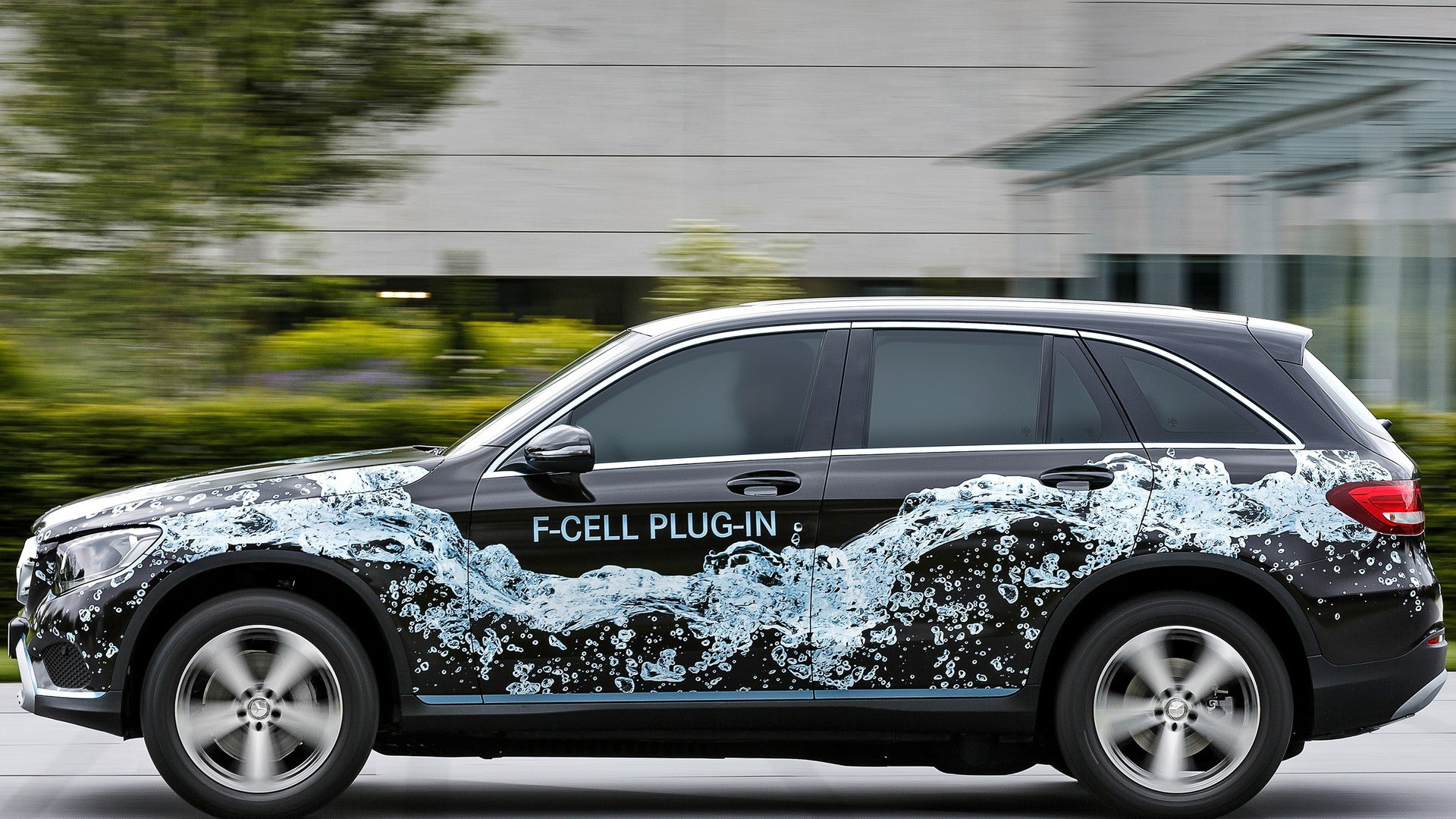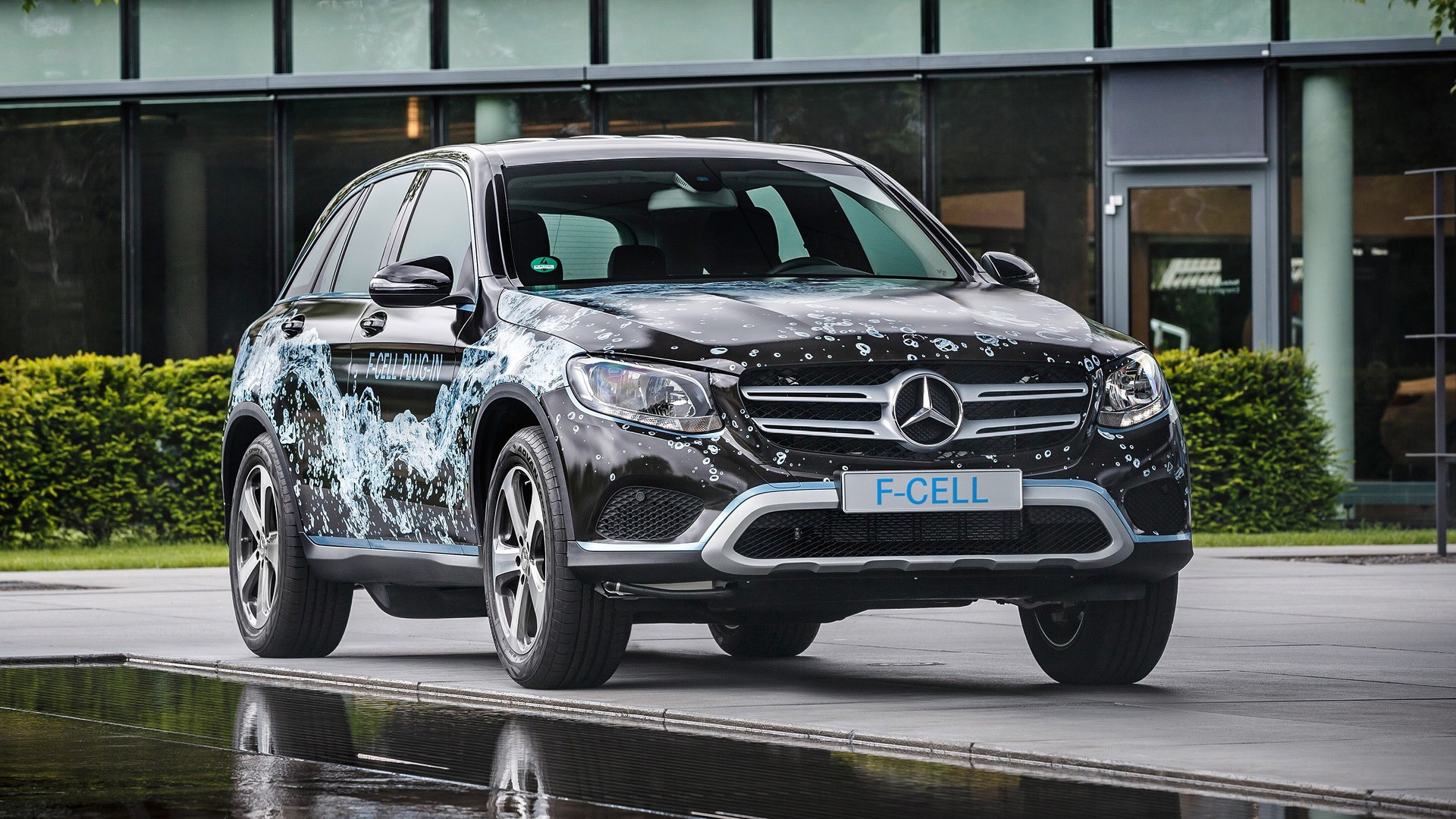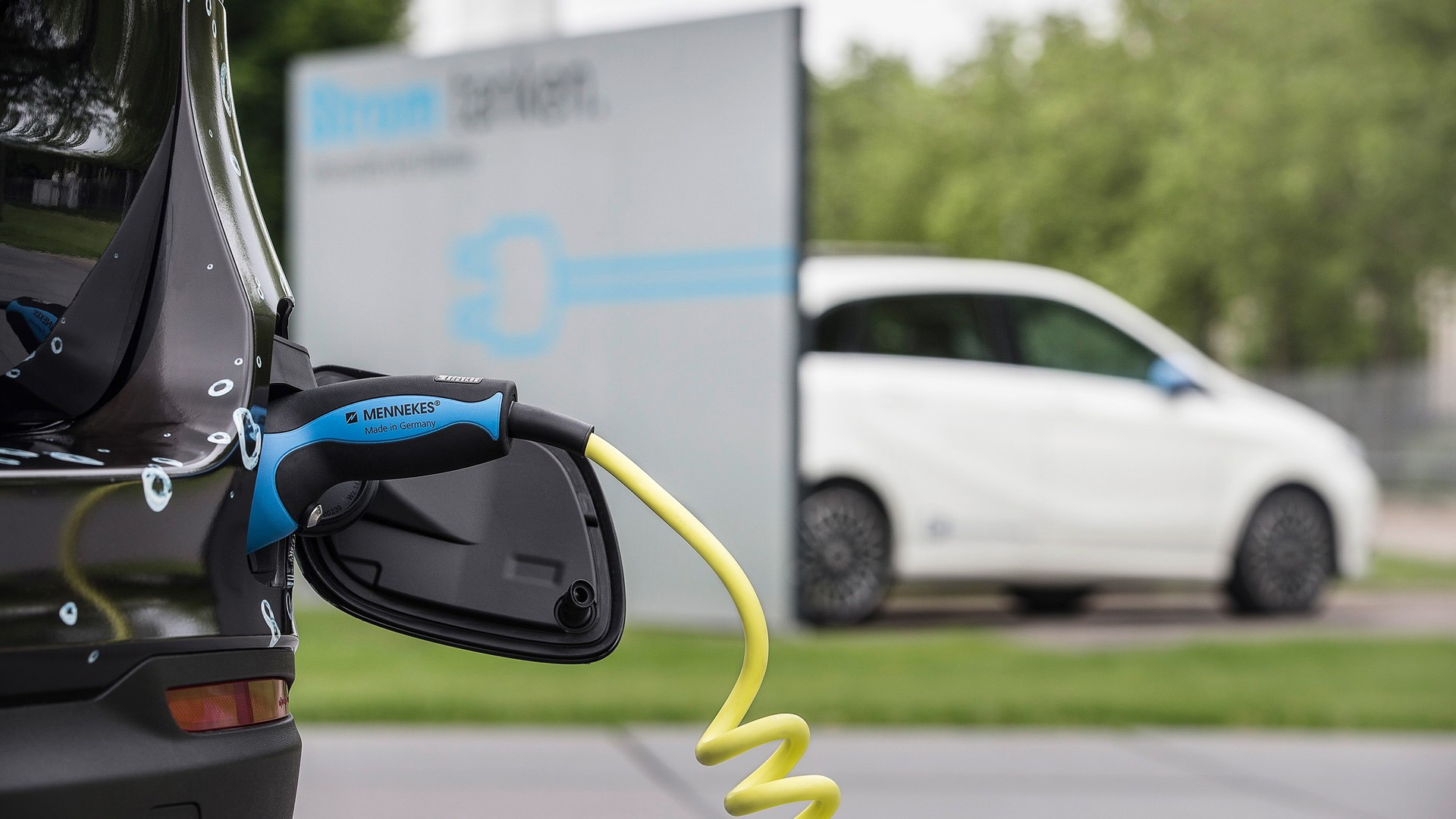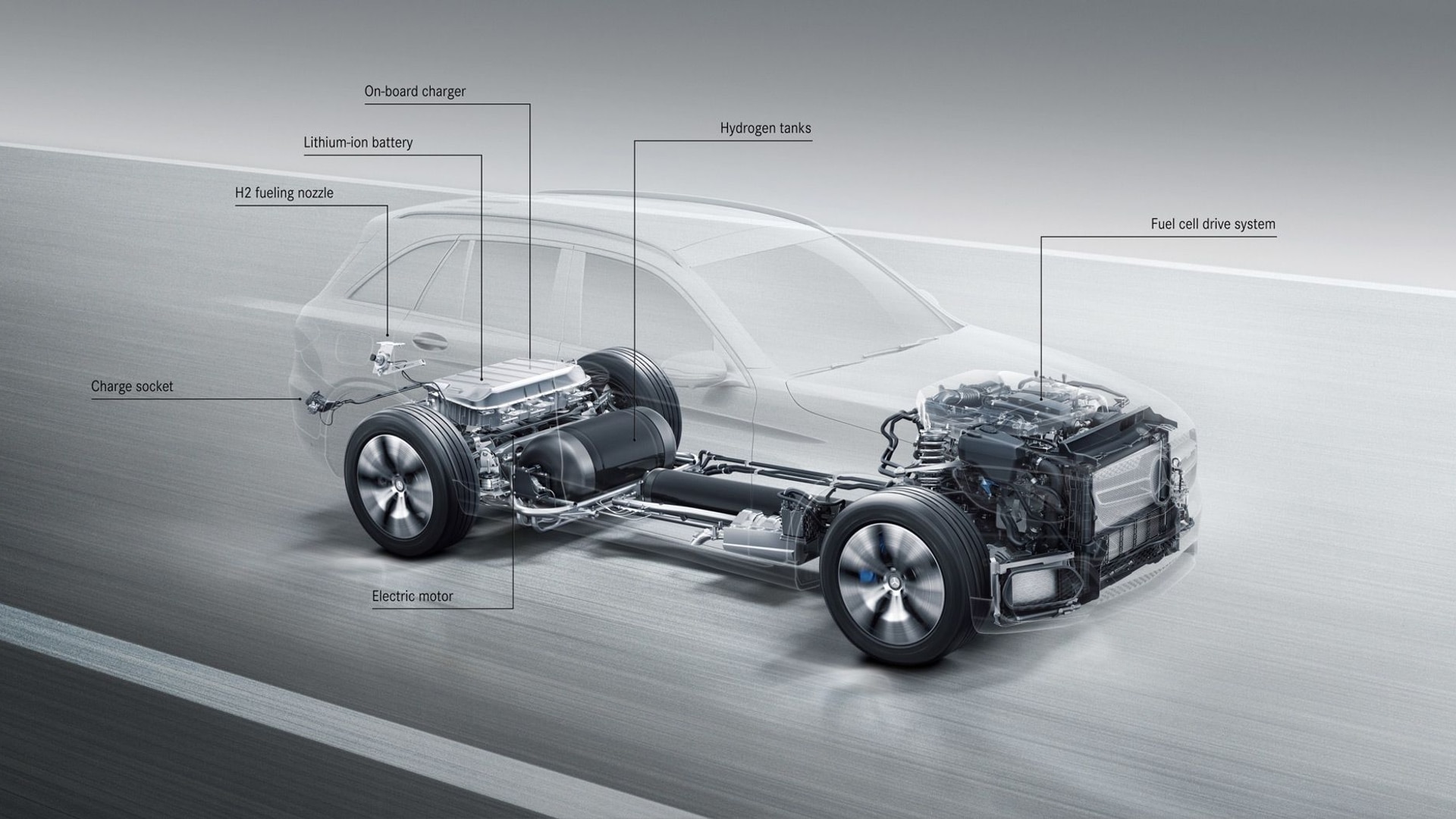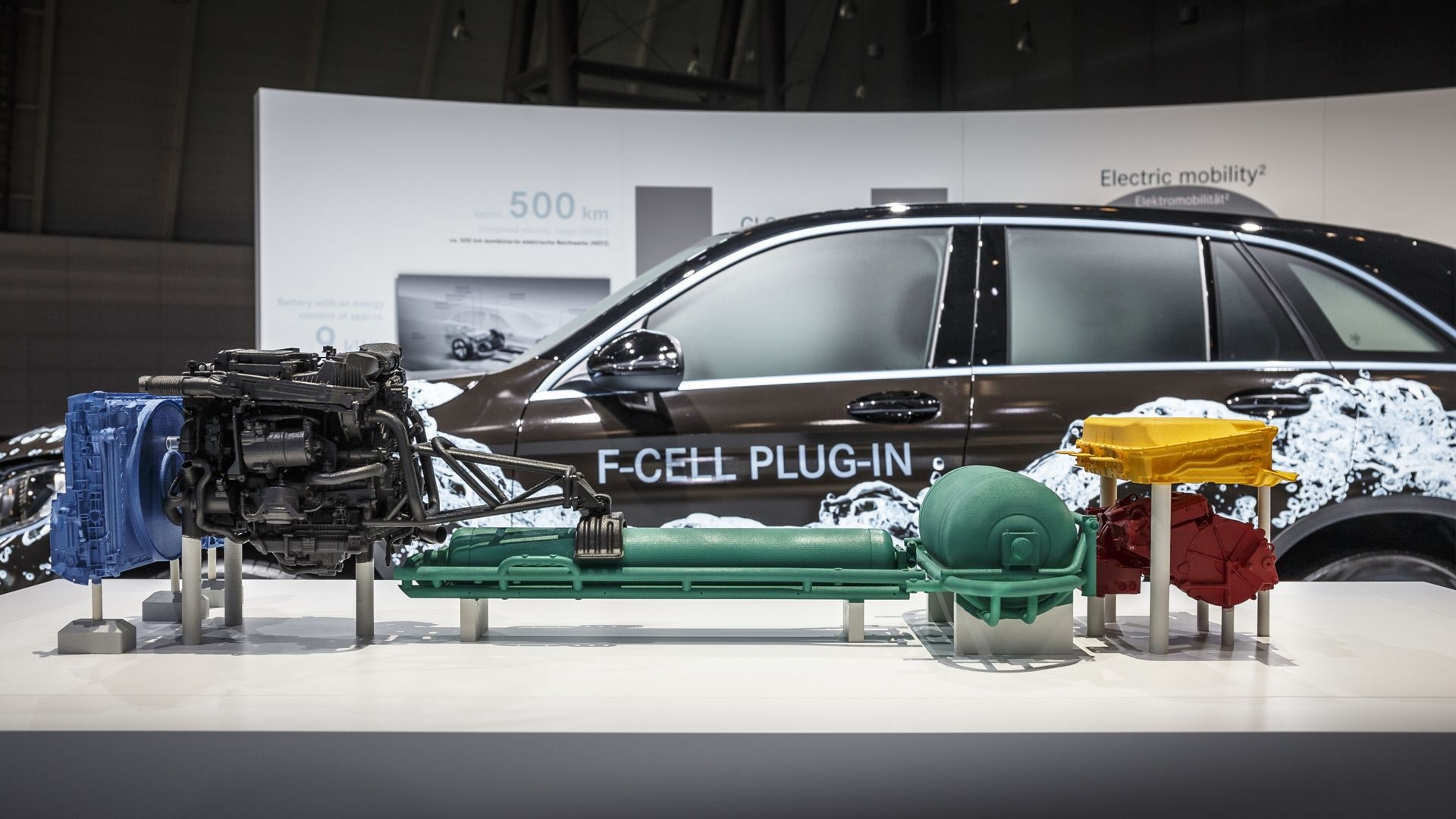Mercedes-Benz first tested the waters with a vehicle powered by a hydrogen fuel cell with the unveiling of the B-Class F-Cell in 2009, which the automaker didn’t actually sell to the public but leased to a small number of customers and fleet buyers to learn about usage patterns.
The automaker has now unveiled a prototype that previews a hydrogen fuel cell car set for launch in 2017. The car will be based on the GLC platform and most likely make its debut at the 2017 Frankfurt Auto Show.
Fuel cell cars are essentially electric cars that instead of relying on a battery to draw power use a fuel cell. The fuel cell combines hydrogen and oxygen from the air in a process whose byproducts are electricity and water. The electricity generated is used to power an electric motor while the water is released to the atmosphere.
Mercedes’ new prototype, the GLC F-Cell, is unique in that it includes a sizeable battery that can be charged via a conventional power outlet, thus making it a hydrogen-electric plug-in hybrid.

Mercedes-Benz GLC F-Cell prototype
This is an important distinction between the GLC F-Cell and other fuel cell cars like the Toyota Mirai and Honda Clarity Fuel Cell. It means drivers will be able to charge the vehicle at public charging stations instead of solely relying on hydrogen stations when the tanks are empty, which Mercedes points out is vital due to the lack of hydrogen infrastructure.
In the GLC F-Cell, a compact, inexpensive fuel cell stack is housed under the hood while a 9.0-kilowatt-hour lithium-ion battery is located at the rear, directly behind one of two hydrogen storage tanks. The two hydrogen tanks (one running down the center of the vehicle and another below the rear seats) store approximately 8.8 pounds of hydrogen.
With the battery fully charged and the hydrogen tanks filled, Mercedes says owners can expect a little over 300 miles of range. With just the battery powering the car, owners can expect about 30 miles of range.
Mercedes is on a mission to drastically reduce its fleet’s emissions, and although its focus is on battery-powered electric cars it isn’t ruling out the potential for fuel cell cars. According to the automaker, fuel cell technology offers a long operating range and short refilling times as well as a broad spectrum of possible uses ranging from passenger cars to buses.
